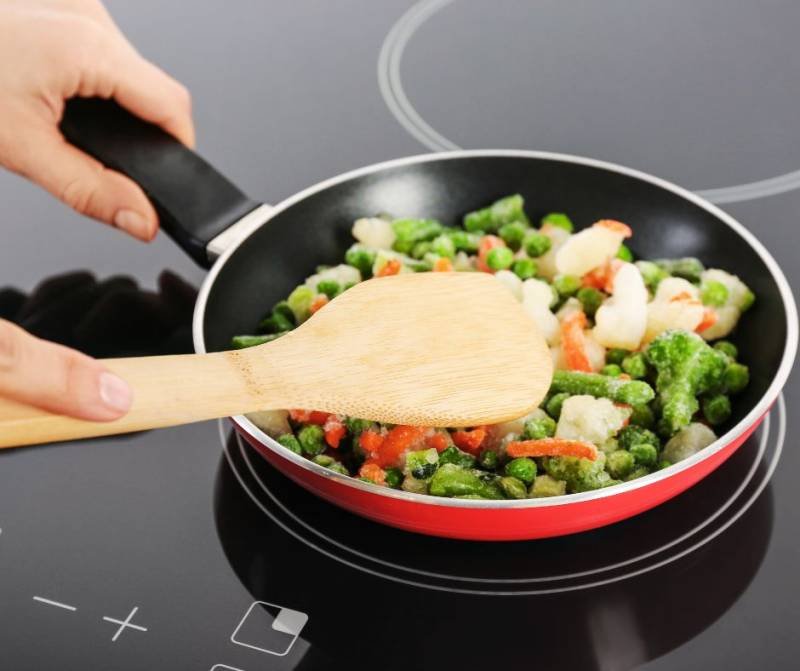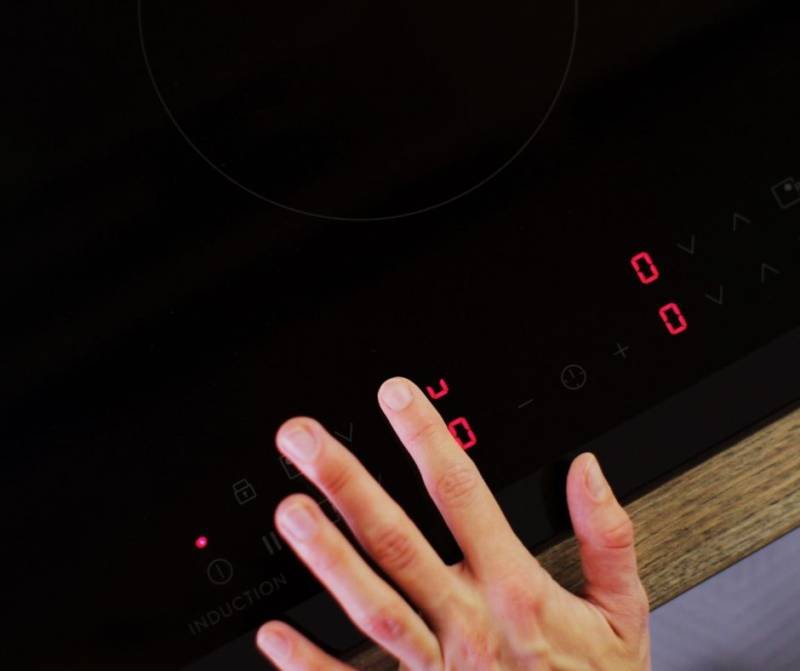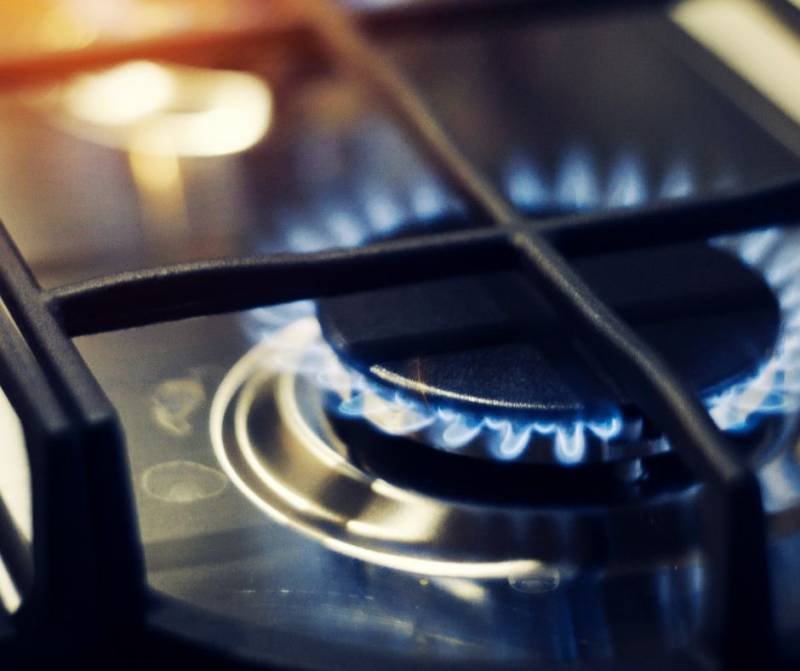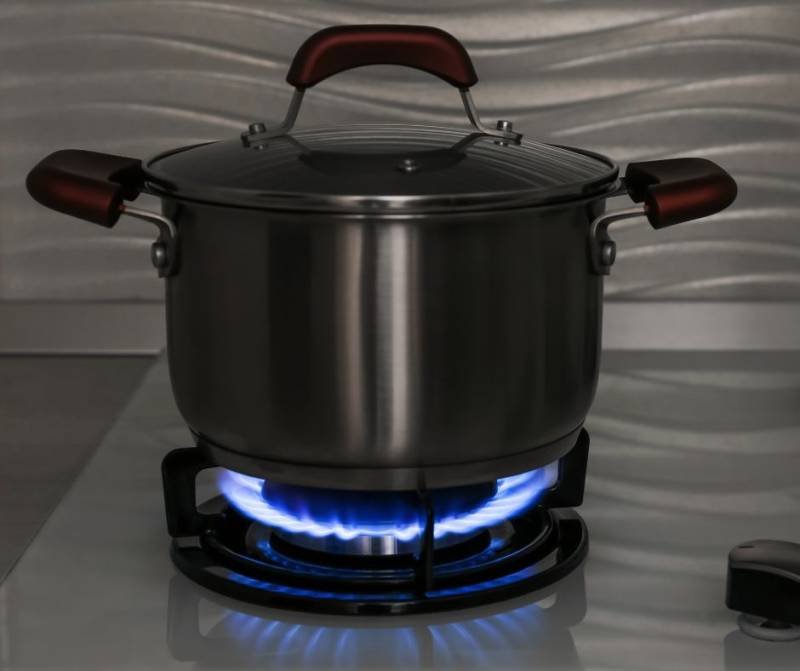Vegan Globetrotter is supported by our audience. When you purchase through one of our links, we may earn a small affiliate commission. As an Amazon Associate I earn from qualifying purchases. Your cost is not affected.
==================
Do Chefs Prefer Gas or Induction?
Unveiling the Top Choice Among Professional Cooks

Introduction to the Gas vs. Induction Debate
The debate between gas and induction cooktops is a subject of much discussion and controversy in professional cooking. Chefs from various culinary backgrounds have preferences and reasons for favoring one method. As cooking technology continues to evolve, it has become increasingly important for both professional and home cooks to understand the critical differences between these cooking methods. In this article, we will explore the advantages and disadvantages of gas and induction cooktops, delving into the factors influencing chefs’ preferences and, ultimately, unveiling their top choice.
Understanding Induction Cooking Technology

Induction cooking is a relatively newer technology that has recently gained popularity. It involves using electromagnetic energy to create heat directly in the cookware rather than relying on a traditional heating element. The induction cooktop generates an alternating electric current, which creates a magnetic field around the cookware. This magnetic field induces eddy currents within the cookware, causing heat and allowing the food to be cooked.
The induction cooking process is highly efficient, as the heat is generated directly in the cookware, resulting in minimal energy loss. This technology also provides incredible precision and control over cooking temperatures, allowing chefs to easily achieve consistent results. Induction cooktops heat up rapidly and cool down just as quickly, offering responsiveness unmatched by other cooking methods.
Advantages of Induction Cooktops

Induction cooktops boast several advantages over traditional gas stoves, making them an attractive option for many chefs. One of the most significant advantages of induction cooking is its energy efficiency. Since heat is generated directly in the cookware, there is minimal energy loss compared to the heat transfer process in gas stoves. This can result in lower energy bills and a reduced environmental impact.
Another notable advantage of induction cooktops is the precise temperature control they offer. Chefs can easily maintain consistent cooking temperatures, which is crucial for achieving perfect recipe results. The rapid heating and cooling capabilities of induction cooktops also contribute to their versatility and ease of use, allowing chefs to switch between cooking techniques easily.
Induction cooktops are also known for their safety features. The cooktop surface remains relatively cool compared to gas stoves, reducing the risk of burns and making it easier to clean up spills. Furthermore, induction cooktops do not produce open flames or gas emissions, reducing the risk of fire hazards and improving indoor air quality.
Understanding Gas Cooking Technology

Gas cooking technology has been around for centuries and is still favored by many chefs due to its familiarity and versatility. Using a gas stove involves natural gas or propane combustion to generate heat, which is then transferred to the cookware through direct contact with the flame. The flame’s intensity can be adjusted by controlling the gas flow, allowing chefs to control the heat precisely. Gas stoves are known for their rapid heating capabilities, allowing chefs to bring cookware to cooking temperature quickly. They also offer high control over cooking temperatures, making it easy for chefs to adjust the heat during cooking.
Advantages of Gas Cooktops

Gas cooktops have several advantages over induction cooktops, contributing to their enduring popularity among chefs. One of the key benefits of gas stoves is their compatibility with a wide range of cookware. Unlike induction cooktops, which require magnetic cookware, gas stoves can be used with any type of cookware, including cast iron, stainless steel, and non-stick pans. Additionally, many chefs appreciate the visual feedback provided by the open flame of a gas stove. The flame allows chefs to gauge the heat level and adjust based on the flame’s size and color. This visual cue can be particularly helpful for chefs who rely on their intuition and experience when cooking. Gas cooktops are also more forgiving when it comes to power outages. Gas stoves can still be used for cooking in a power outage, whereas induction cooktops require electricity.
Witness an electrifying cooking challenge as two powerful cooking methods, induction and gas, go head-to-head in the ultimate boiling contest! Experience the astounding speed and efficiency of induction cooking, boiling water in a mere 2 minutes and 20 seconds, while the gas cooktop takes over 4 minutes to achieve the same result. Explore the remarkable benefits of induction, including its cool-to-the-touch surface, and stay tuned for more captivating appliance demonstrations and expert insights. Prepare to be amazed by this eye-opening comparison!
Video Credit: @BoulevardHome
Comparing Induction Cooktops and Gas Stoves
When comparing induction cooktops and gas stoves, it is essential to consider the various factors influencing a chef’s preference. While induction cooktops offer energy efficiency, precise temperature control, and safety features, gas stoves provide compatibility with a wide range of cookware, visual feedback, and the ability to function during power outages.
Ultimately, the choice between induction and gas cooking comes down to personal preference and the chef’s or cook’s specific needs. Budget, kitchen space, and cooking style will all play a role in determining the best option for each individual.
Factors Influencing Professional Chefs’ Preferences
Several factors influence professional chefs’ preferences between induction and gas cooktops. These factors may include the type of cuisine they specialize in, their cooking style, and their personal experiences with each cooking method.
For instance, some chefs may prefer the precise temperature control and energy efficiency offered by induction cooktops, mainly when working with delicate ingredients or preparing intricate dishes. On the other hand, chefs who specialize in traditional or rustic cuisines may prefer the open flame and tactile feedback provided by gas stoves, as it allows for more intuitive cooking.
The kitchen environment and available resources may also influence a chef’s cooktop preference. For example, chefs working in smaller kitchens or those with limited ventilation may opt for induction cooktops due to their reduced heat output and lack of open flame.
Survey Results: Do Chefs Prefer Gas or Induction?
Given the various factors influencing chefs’ preferences, it is difficult to make a blanket statement about whether professional chefs prefer gas or induction cooktops. However, surveys conducted among chefs reveal that many still prefer gas stoves, citing their versatility, familiarity, and compatibility with various types of cookware.
That said, induction cooktops continue to gain popularity among professional chefs, particularly those working in modern, high-end kitchens or those focused on energy efficiency and sustainability. As induction cooking technology evolves and improves, more chefs will likely adopt this method.
Successful Chefs’ Testimonies on Their Cooktop Choice
Many successful chefs have shared their opinions on the gas vs. induction cooktop debate, offering valuable insights into their preferences and experiences with each cooking method. Some renowned chefs like Heston Blumenthal and Grant Achatz have praised induction cooktops for their precision, efficiency, and safety features. These chefs often emphasize the importance of consistency and control, making induction cooktops ideal for their kitchens.
On the other hand, chefs like Gordon Ramsay and Jamie Oliver have expressed their preference for gas stoves, appreciating the versatility, familiarity, and tactile feedback they provide. These chefs often work with various ingredients and cooking techniques, making gas cooktops more suitable for their diverse culinary endeavors.
Making the Right Choice for Your Kitchen

When considering whether to choose a gas or induction cooktop for your kitchen, I would like to weigh the pros and cons of each option and evaluate your specific needs and preferences. Factors such as your budget, available kitchen space, cooking style, and the cookware you use should all be considered when deciding.
It may also be helpful to consult with professional chefs or individuals with experience with gas and induction cooktops. Their insights and experiences can provide valuable guidance in determining the best option for your kitchen.
Conclusion and Recommendations
The debate between gas and induction cooktops concerns personal preference and individual needs. While surveys suggest that many professional chefs still prefer gas stoves, the popularity of induction cooktops continues to grow as more chefs recognize their energy efficiency, precise temperature control, and safety features.
When choosing between gas and induction cooktops, it is crucial to consider your specific needs, preferences, and cooking style. Ultimately, the best option for you will depend on various factors, including your budget, kitchen space, and the type of cookware you use. In conclusion, there is no definitive answer to the question, “Do chefs prefer gas or induction?” Instead, the choice between these two cooking methods comes down to individual preferences and needs. By carefully considering your options and consulting with experienced chefs, you can make an informed decision that best suits your kitchen and cooking style.
FAQs
Can chefs use induction cooking for traditional recipes that require a gas flame?
Absolutely! Chefs can adapt their cooking techniques to induction cooktops by using specialized cookware like cast iron or stainless steel, ensuring they achieve the desired results.
Are there any notable advantages of gas cooking over induction for professional chefs?
Gas cooking provides chefs with the benefit of instant heat control, allowing them to quickly adjust temperatures and respond to changes in cooking requirements. This level of control is highly valued in many culinary applications.
Do chefs experience any challenges when switching from gas to induction cooking?
While some chefs may initially face a learning curve when transitioning to induction cooking, it offers precise temperature control and energy efficiency that can enhance their culinary skills once they adapt to the technology.
Fuel Your Vegan Cooking Adventure: Connect with Us for Culinary Inspiration!
Discover the vibrant world of vegan cooking, gas and induction cooking, and the beauty of veganism! Join our passionate community on Facebook, Instagram, Pinterest, and Twitter. Engage with captivating content, explore product reviews, and connect with fellow food enthusiasts. Follow us now:
? Facebook: facebook.com/VeganGlobetrotter
? Instagram: instagram.com/_veganglobetrotter/
? Pinterest: pinterest.com/theveganglobetrotter
? Twitter: twitter.com/VeganGlobetrot
Unleash your culinary creativity and embark on a journey to a healthier, more sustainable lifestyle. Let’s inspire each other and make a positive impact together. Don’t miss out—join us today! #VeganCooking #GasAndInduction #Veganism



Don't miss out
when new recipes and information are added!
Join our newsletter for free recipes,
healthy living inspiration, and special offers
You have Successfully Subscribed!